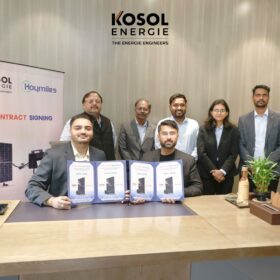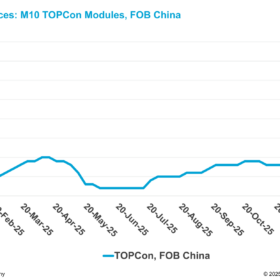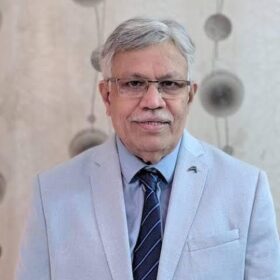“As India transitions to a cleaner and more sustainable future, the energy sector will be at the forefront of driving the country forward in terms of clean energy and renewable energy resources. The Hon’ble Prime Minister Narendra Modi’s vision has been reflected in the nation’s achievements over the last decade, during which there was a remarkable 4,000% increase in our installed solar capacity over a decade. Our overall renewable energy capacity currently stands at a robust 227 gigawatts, we are likely the first G20 country to have achieved the goals of the nationally determined contributions we set out to accomplish in the Paris Agreement”, said Union Minister of Commerce and Industry, Shri Piyush Goyal, while virtually addressing the India Energy Storage Week 2025.
In Jammu and Kashmir, there is a Pali village that stands out as India’s first neutral panchayat. This village uses solar energy, prioritizes energy efficiency, and focuses on waste reduction. They have truly set a remarkable example that paves the way for a sustainable future. Over the last decade, we have significantly increased our manufacturing capacity. Today, our solar photovoltaic module capacity has grown nearly 38 times, while our solar photovoltaic cell capacity has expanded 21 times, he added.
Emphasising the importance of events like IESW, Shri Piyush Goyal further said, “The conference that is being held today will certainly help us in taking forward our cleaning of the cities and environment, reducing pollution level, particularly in the cities, and your felicitation today evening of women in energy is truly very heartwarming”.
Union Minister also suggested a four-pronged approach towards energy efficiency:
1. Core Focus on Innovation: Innovation should be central to our ambitions, particularly in terms of investment in India. Spending one lakh crore here can equate to a much larger R&D investment in developed countries due to our competitive costs.
2. Charging and Battery Swapping Infrastructure: To accelerate the adoption of electric vehicles, it’s essential to develop a coexistence model for charging stations and battery swapping facilities. Companies should forge alliances and collaborate to create a framework that supports affordable electric mobility.
3. Diversification and Self-Reliance in Supply Chains: We need to minimize dependency on specific regions for critical supply materials. This can be achieved by exploring alternative supply sources and advancing newer technologies to enhance self-reliance (Atma Nirbharta) and ensure resilience in our supply chains.
4. Holistic Approach to the Energy Value Chain: Our ambitions must encompass the entire energy value chain, from critical minerals and cell components to energy storage and recycling. Stakeholders should seek new opportunities to scale operations, ensuring 24-hour renewable energy availability and working toward achieving the goal of 500 gigawatts of renewable energy by 2030.
Addressing the future of energy storage and renewable energy solutions in India, the 11th edition of IESW 2025 witnessed a remarkable gathering of industry leaders, policymakers, stakeholders, and over 200 global energy leaders. It provided a platform for over 300 unique product innovations in EVs, charging infrastructure, solar, green hydrogen, batteries, and RE. It also witnessed 7+ factory/ new product announcements from India’s top manufacturers and cutting-edge futuristic energy storage solutions, including Lithium-ion, Lithium-sulfur, Sodium-ion batteries, and other technologies from across the globe.
About India Energy Storage Alliance (IESA)
The India Energy Storage Alliance (IESA) is a premier industry body dedicated to promoting energy storage, e-mobility, and green hydrogen adoption in India. IESA works with policymakers, industry stakeholders, and research institutions to accelerate market development through policy advocacy, business networking, and thought leadership.





